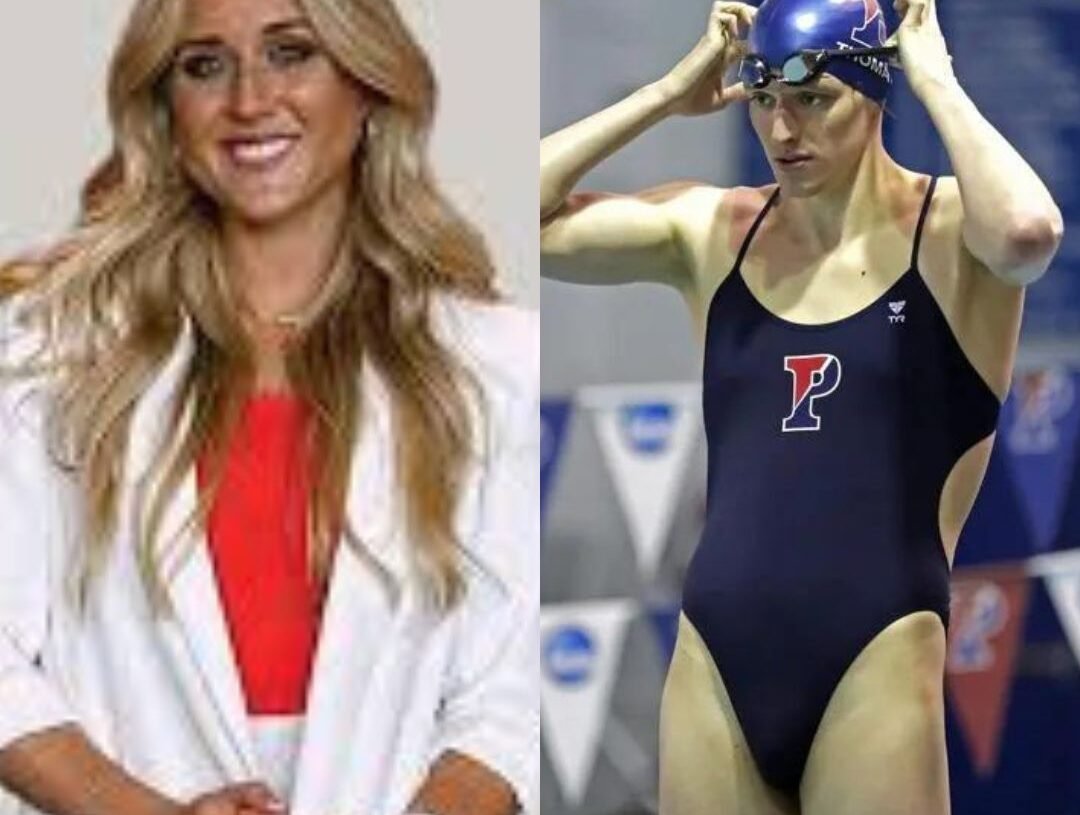In a landmark legal battle that has captured widespread attention within the sports community, swimmer Riley Gaines has emerged triumphant in her lawsuit against the NCAA. The $50 million settlement, granted to Gaines for what she perceives as unfair medal distribution, signifies a significant victory not only for the athlete herself but also for those who question what they see as an excessive influence of political correctness in sports.
The dispute arose from Gaines’ argument that the NCAA unfairly allocated medals in favor of Lia Thomas, a transgender swimmer whose participation in women’s swimming competitions has sparked controversy. Gaines contended that the NCAA’s handling of the situation not only neglected principles of fairness and meritocracy but also eroded the integrity of competitive sports.
A highly accomplished swimmer, Gaines felt that her own accomplishments were overshadowed by the NCAA’s decision to prioritize inclusivity over athletic excellence. The $50 million settlement stands as validation for Gaines and reinforces the principle that merit should be the foremost criterion for success in sports.

In a statement following the resolution of the lawsuit, Gaines expressed her relief and appreciation. “This victory goes beyond mere financial compensation,” she stated. “It underscores the significance of maintaining fairness and integrity in sports, and I hope it serves as a reminder for organizations like the NCAA to prioritize these principles in the future.”
The legal proceedings and subsequent settlement have reignited discussions regarding the role of social awareness in sports and the delicate balance between inclusivity and competitiveness. While many commend Gaines for speaking out against what they perceive as undue influence from political correctness, others argue that her actions undermine efforts to foster a more inclusive and equitable sporting environment.
Supporters of Gaines assert that her triumph represents a victory for meritocracy over identity politics. They argue that athletes should be evaluated solely based on their performance and achievements, rather than factors such as gender identity or political persuasion. By contesting the NCAA’s decision, Gaines has emerged as an advocate for fairness and integrity in sports.
Nevertheless, critics contend that Gaines’ lawsuit seeks to impede progress towards greater inclusivity in sports. They argue that initiatives like allowing transgender athletes to compete according to their gender identity are vital steps toward cultivating a more diverse and welcoming athletic community. By challenging these initiatives, Gaines and her supporters risk perpetuating discrimination and exclusion in sports.
The $50 million settlement serves as a reminder of the multifaceted and often contentious nature of sports in contemporary society. While sports possess the ability to unite individuals from varied backgrounds and promote values such as teamwork and resilience, they also mirror broader social and political tensions.
As the discourse on social awareness in sports evolves, it is imperative to uphold balance and nuance. While inclusivity and diversity are undoubtedly important objectives, they must be pursued in a manner that does not compromise the foundational principles of fairness and meritocracy.
In Riley Gaines’ case, her triumph in the lawsuit against the NCAA represents a significant juncture in the ongoing conversation about the future of sports. By advocating for her beliefs and challenging the established order, Gaines has not only secured a substantial settlement but also ignited crucial discussions about the values that should underpin the realm of athletics.
